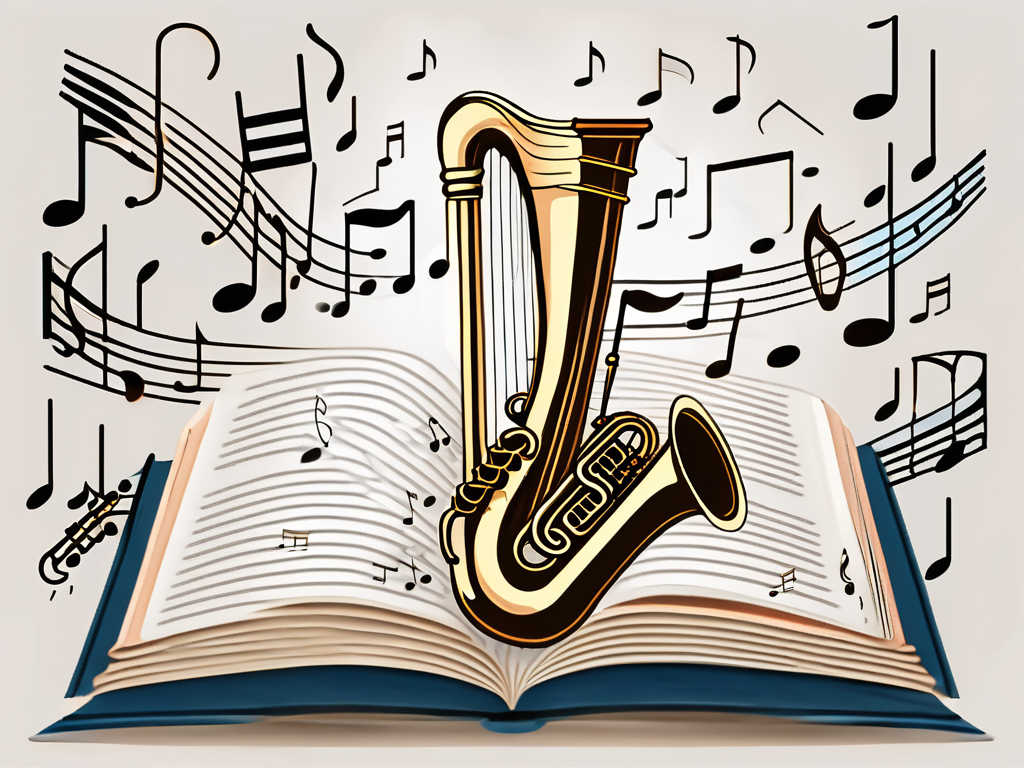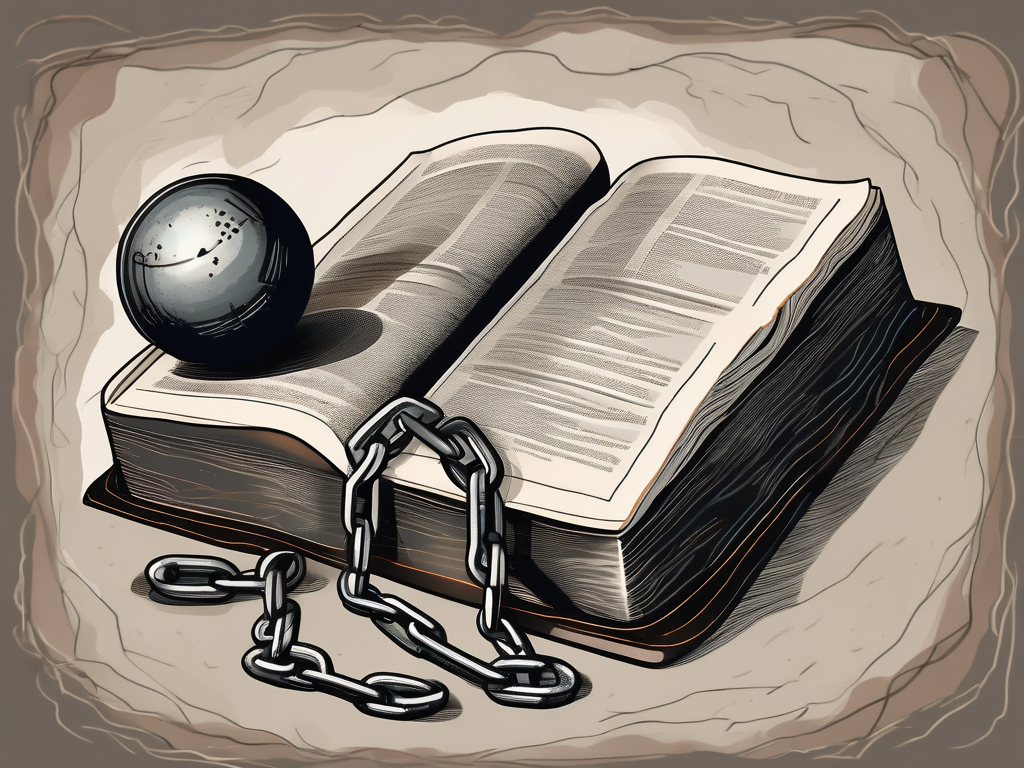Music has always played a significant role in human society, and the Bible is no exception. Throughout its pages, the Bible references music in various contexts, shedding light on its purpose and power. In this article, we will explore what the Bible says about music, its role in biblical times, and its influence on contemporary interpretations.
Understanding the Role of Music in the Bible
Before delving into specific references, it’s crucial to grasp the overall significance of music in the Bible. Music was an integral part of ancient Hebrew culture, deeply intertwined with their religious practices and daily lives.
Music in the Bible not only served as a means of worship and expression but also played a significant role in the emotional and spiritual well-being of the people. It had the power to uplift their spirits, bring comfort in times of distress, and foster a sense of unity among the community.
When we examine the Old Testament, we find numerous instances of music being used as a form of worship and expression. The book of Psalms, in particular, is often referred to as a collection of songs or hymns. These psalms cover a wide range of emotions, from joy and praise to sorrow and lament.
The psalms were not merely poetic verses but were intended to be sung or chanted. They provided a channel for the people to express their deepest thoughts and feelings to God. Through music, they could pour out their hearts and find solace in the presence of the divine.
A key figure in Old Testament music is King David, who was not only a skilled musician but also a songwriter. He played the harp and composed many of the psalms that are still cherished today. David’s melodies were said to have the power to soothe King Saul’s troubled spirit.
David’s musical talent and his deep connection with God set a precedent for the importance of music in worship. His songs became a source of inspiration for generations to come, and his legacy as a musician continues to influence the way we approach music in a religious context.
Music in the New Testament
In the New Testament, music takes on a different role. While there is no specific mention of composing or performing hymns, the importance of singing and making melody in one’s heart is emphasized. The apostle Paul, in his letters, encourages believers to use music as a form of worship and gratitude towards God.
Music in the New Testament is seen as a way to express one’s faith and devotion to God. It is a means of connecting with the divine and finding spiritual fulfillment. Singing praises and making melody in one’s heart is not only a way to honor God but also a way to strengthen one’s own faith and find solace in times of trouble.
Throughout the Bible, music serves as a powerful tool for communication, worship, and spiritual growth. It transcends language barriers and speaks to the depths of the human soul. Whether it is through the ancient psalms of David or the heartfelt songs of believers in the New Testament, music continues to play a vital role in the lives of those who seek a deeper connection with the divine.
Biblical References to Music and Instruments
Aside from understanding the role of music in the Bible, it’s essential to explore the specific references to music and instruments within its verses.
The Psalms: A Musical Book in the Bible
As mentioned earlier, the book of Psalms is a treasure trove of musical expression. It contains songs of praise, thanksgiving, and lamentation. The psalms were often sung or recited during ceremonies and worship gatherings. They serve as a testament to the power and beauty of music in connecting with the divine.
Let us delve deeper into the Psalms and discover the profound impact they had on the ancient Israelites. These poetic compositions were not merely words on a page but were meant to be experienced through music. The Psalms provided a means for the people to express their deepest emotions, whether it be joy, sorrow, or longing. Through the melodies and harmonies that accompanied the lyrics, the Psalms became a channel for spiritual connection and a source of solace during times of hardship.
Imagine standing in the midst of a bustling temple, surrounded by the harmonious voices of the worshipers and the resonating sounds of various musical instruments. The Psalms would come alive, filling the sacred space with a symphony of devotion. Each note played and each word sung would reverberate through the hearts of those present, creating an atmosphere of reverence and awe.
Instruments Mentioned in the Bible
Throughout the Bible, various musical instruments are mentioned, each carrying its unique significance. Instruments such as the harp, lyre, trumpet, and cymbals are frequently referenced. These instruments were used to accompany singing, worship, and celebration. Their sounds added depth and richness to the music of the time.
Let us take a closer look at these instruments and their roles in biblical times. The harp, with its delicate strings and resonant tones, was often associated with soothing and calming melodies. It was believed to have the power to heal and bring comfort to troubled souls. The lyre, on the other hand, had a more lively and upbeat character. Its plucked strings produced a cheerful sound that uplifted the spirits of those who listened.
As for the trumpet, its piercing and triumphant sound was used to announce important events and summon people together. It served as a call to worship and a reminder of the divine presence. The cymbals, with their clash and clang, added a vibrant and energetic element to the music. They were often played during festive occasions and celebrations, creating an atmosphere of joy and exuberance.
These instruments were not mere props in the biblical narrative but were integral to the worship and spiritual experience of the ancient Israelites. They were tools through which the people could express their devotion and connect with the divine. The music created by these instruments became a language of the soul, transcending words and reaching the depths of the human spirit.
The Purpose and Power of Music in Biblical Times
While understanding the historical and cultural context of music in the Bible is essential, it is equally important to recognize its purpose and power.
In biblical times, music held a significant role in the lives of the people. It was not merely a form of entertainment, but a means through which individuals could connect with the divine and express their deepest emotions.
Music as Worship
One of the primary functions of music in biblical times was to serve as a form of worship. It was a means through which people could express adoration, surrender, and reverence towards God. The Psalms, for example, not only communicate human emotions but also direct them towards divine praise.
Imagine standing in a crowded temple, surrounded by fellow worshippers. The sound of harps, lyres, and tambourines fills the air as the voices of the congregation rise in harmony. The music creates an atmosphere of awe and devotion, drawing the worshippers closer to their Creator.
Music had the ability to unite individuals in a collective act of worship, creating an atmosphere of spiritual connection and transcendence. It was a powerful tool that allowed people to express their love and devotion to God in a way that words alone could not.
Music as a Tool for Teaching and Prophecy
Beyond its role in worship, music also served as a tool for teaching and prophecy. In the Old Testament, certain prophetic passages were delivered in the form of songs or poetic verses. The lyrics of these songs conveyed profound messages, often calling for repentance and justice.
Picture a prophet standing before a crowd, strumming a simple melody on his lyre. As the music fills the air, the words of the prophecy come alive, resonating in the hearts of the listeners. The combination of music and prophecy creates a powerful experience, stirring the emotions and inspiring change.
Moreover, music provided an avenue for passing down oral traditions, preserving historical accounts, and instilling moral values in future generations. The melodies served as mnemonic devices, making it easier for people to remember and pass on important narratives.
Through music, stories of triumph and tragedy were etched into the collective memory of the people. The melodies became a thread that connected generations, ensuring that the lessons and wisdom of the past were not forgotten.
In conclusion, music in biblical times was not just a form of entertainment, but a powerful means of worship, teaching, and prophecy. It had the ability to unite people, connect them with the divine, and preserve important narratives for future generations. The purpose and power of music in biblical times cannot be underestimated, as it played a vital role in the spiritual and cultural life of the people.
Controversial Views on Music in the Bible
While music is generally celebrated in the Bible, there are also instances where its use is met with criticism.
However, it is important to note that the Bible does not outright condemn music as a whole. Instead, it provides cautionary tales and guidelines to ensure that music is used in a way that aligns with God’s will.
Music and Idolatry
The worship of false gods through music is seen as a perversion of true worship. Several passages in the Bible condemn the use of music in idolatrous rituals, where it becomes a tool for worshiping gods other than the God of Israel. These passages underscore the importance of using music for the right purpose and in the right context.
One such example can be found in the story of the golden calf in Exodus 32. When Moses was on Mount Sinai receiving the Ten Commandments, the Israelites grew impatient and created a golden calf to worship. As they engaged in idolatrous practices, they also used music to accompany their worship. This misuse of music led to severe consequences, as God’s wrath was unleashed upon the people.
Similarly, in the book of Daniel, King Nebuchadnezzar commanded everyone to bow down and worship a golden image he had set up. Music played a significant role in this idolatrous act, as it was used to signal when everyone should bow down. However, three faithful Israelites, Shadrach, Meshach, and Abednego, refused to worship the golden image, even in the presence of the music. Their unwavering faith in God demonstrated the importance of not allowing music to lead them astray.
Music and Emotional Manipulation
Another controversial aspect of music in biblical times was its potential to manipulate emotions. Some individuals were wary of music’s ability to stir intense feelings and believed it could be used to deceive or exert undue influence over people. This view highlights the need for discernment in the use of music, both in biblical and contemporary contexts.
One example of emotional manipulation through music can be found in the story of David and King Saul. David, a skilled musician, was called upon to play the lyre for Saul whenever an evil spirit troubled him. The soothing melodies played by David had a calming effect on Saul, alleviating his distress. However, this also highlights the power of music to influence and manipulate emotions, as Saul’s emotional state was directly affected by the music played.
Furthermore, in the New Testament, the apostle Paul warns the Ephesians about being carried away by “every wind of doctrine” (Ephesians 4:14). This cautionary advice can be applied to music as well, as it has the potential to sway individuals’ emotions and beliefs if used in a manipulative manner.
It is important to recognize that these controversial views on music in the Bible do not negate its overall positive role. Music has the ability to uplift, inspire, and bring people closer to God. However, these cautionary tales serve as reminders to approach music with discernment and use it for its intended purpose – to glorify God and edify the spirit.
Modern Interpretations of Biblical Music
As time progressed and Christianity spread, music underwent various transformations while still drawing inspiration from the Bible.
The Evolution of Christian Music
Christian music has evolved significantly since biblical times. From the Gregorian chants of the medieval era to the hymns of the Reformation and the contemporary worship songs of today, music has adapted to different cultural and musical expressions while maintaining its ties to biblical themes and teachings.
The Bible’s Influence on Contemporary Music Genres
The Bible continues to inspire modern musicians across various genres, including gospel, Christian rock, and worship music. Artists draw upon biblical narratives, themes, and spiritual experiences to create music that resonates with believers and non-believers alike. The timeless messages of hope, faith, and love found in the Bible are reaffirmed and conveyed through contemporary musical expressions.
In conclusion, the Bible acknowledges and celebrates the power and purpose of music. It was an integral part of worship, teaching, and prophecy in biblical times. Today, as we interpret and apply these teachings in contemporary settings, music remains a potent medium for expressing our emotions, connecting with the divine, and sharing the timeless messages of faith and hope found in the Bible.












